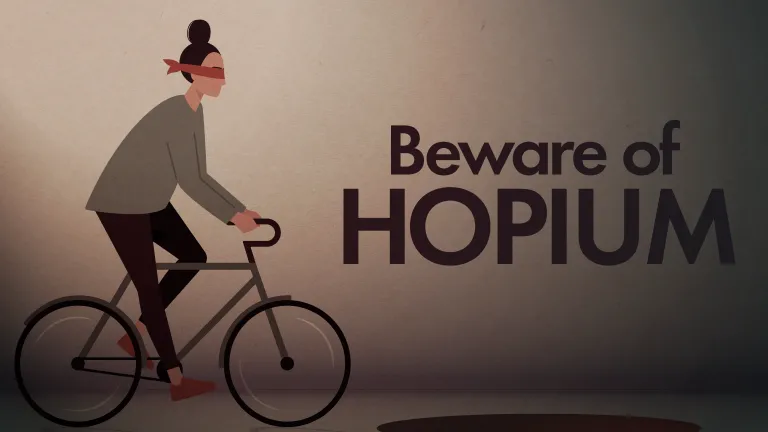Course Content
The Bible tells us that we get to decide whether we'll walk with the wise or flounder with fools. Which will you choose?
What impact have your friends had on you lately? This might sound like a strange question, but your friends have influenced you—for better or for worse—more than you think. Does it really matter which friends you select? After all, shouldn't a Christian be willing to have anyone around as a friend?
Some argue that Christians should invite everyone into their circle of friends since Jesus Christ was inclusive during His earthly ministry. This belief seems appealing on its surface, but there is more to the issue than meets the eye. The Bible indicates that whom you choose as your friends has much to do with how far you will go in life.
As a former prosecuting attorney, I observed many bright and talented young people as they faced the criminal justice system. Regrettably, their presence in a courtroom almost always came about because of unwise decisions. The collective testimony of these young defendants reveals that long before they were charged with an offense and brought before a judge, they made poor choices of friends. A few examples illustrate this point:
Chuck (names have been changed) was an intelligent high school junior who went to a privileged school and came from a good family. He was athletic, witty and well connected. Although he planned on attending a top university, one day he accepted some less ambitious individuals into his ever-widening circle of friends. They tempted him to try alcohol and marijuana. Soon he was comfortable with his newfound friends and habits.
One evening, following a day of surfing with his buddies, he went to a party where he drank alcohol and smoked marijuana. He left the party and was arrested for driving under the influence and possession of marijuana. He was convicted of the offenses and spent time in jail. At that point, his life wasn't ruined but his future was certainly tainted. The court made it clear to him that unless he found a new group of friends, this would not be his last visit to the jail cell.
Jennifer was a gifted, attractive teen who had everything going for her. Besides the blessing of living in an intact Christian home, she had a positive group of friends at church and school. Although everyone around her was certain she would attain her goal of becoming a veterinarian, everything changed when she started spending less time with her church friends in favor of a delinquent group at school.
Disregarding her parents' instructions, she persisted in associating with this group, which was into drugs and other illicit activities. Within three years, she was married, divorced and had two children by two of these young men. Meanwhile, her dream of becoming a veterinarian is still on hold. As she tends to the children alone, she wonders when she will realistically be able to start college.
By all accounts, Seth was a good person and a law-abiding citizen, but as a high school senior, he found himself in court on a drug charge. According to what his attorney told me, he wasn't afraid of going to jail for a few days. He feared that merely having a drug conviction on his record would keep him out of a good university and would shatter his dream of becoming an engineer.
I worked with this sincere young man and offered him a deal that did not result in a conviction. Today he is getting ready to enter an engineering program, but if he continues to associate with the same "friends" who helped him get arrested, he might not be in the program long.
In each of these cases, a decent young person chose to form relationships with foolish and unprincipled individuals. None of these three appreciated the importance of choosing good friends who would lift them up and make them better persons. Being in a bad circle of friends influenced each of these defendants to abandon good judgment and make choices that led to the courtroom and, in some cases, jail. Beyond the criminal justice system, each person mentioned above is probably scarred for life and may never reach his or her full potential.
If you are reading this magazine, you probably want to do well in life and live in a way that pleases God and those close to you. You probably want to be a good citizen, make a good living, contribute to your church and community and achieve genuine, sustained happiness. The friends you choose and the relationships you forge will have much to do with each of these worthy goals. Your Bible has many timeless lessons and instructions that deal directly with these important issues.
Biblical advice on choosing friends
The book of Proverbs is full of instructions concerning how we can do well and become successful, including instructions on how we should choose our friends. Proverbs 13:20 instructs us that "he who walks with the wise grows wise, but a companion of fools suffers harm" (New International Version throughout, emphasis added). Here we are instructed that to befriend foolish people will bring harm to our lives. On the other hand, seeking out wise friends who live right will bring about blessings.
Proverbs 1:10-16 provides a compelling warning against befriending those who engage in sinful lifestyles. The passage begins, "My son, if sinners entice you, do not give in to them." Solomon then describes the voice of these sinners: They will persuasively attempt to recruit you for a myriad of sinful or illicit actions, including harming others and theft (verses 11-14). In verse 15, he continues, "My son, do not go along with them, do not set foot on their paths; for their feet rush into sin, they are swift to shed blood."
The apostle Paul affirms: "Do not be misled: 'Bad company corrupts good character'" (1 Corinthians 15:33).
If Chuck, Jennifer and Seth had internalized these passages, perhaps they would have avoided the life-altering consequences of having an unprincipled group of friends.
These scriptures and others indicate that in order to do well, be happy and obey God, we must choose good, principled friends and avoid negative, immoral people.
Advice from successful leaders
Many successful and prominent leaders have discovered the importance of choosing one's friends and associates wisely. If you know someone in business, government or your local church who has accomplished worthwhile endeavors, you can be sure that he or she was influenced by great people along the way.
Rudy Giuliani, former mayor of New York City, understands the fundamental importance of being mindful of your friends and associates. In his best-selling book Leadership (2002), Mr. Giuliani discusses the importance of this issue at length in a chapter titled "Surround Yourself With Great People."
What Mr. Giuliani essentially affirms in this chapter is the consistent and predictable truth of Proverbs 13:20: If you surround yourself with great (wise) people, you will benefit in countless ways. Conversely, if you surround yourself with mediocre, immoral or unethical people, you will take on their character traits and will not do well in life.
Distinguished leadership author John Maxwell teaches this same principle. In his book The 21 Irrefutable Laws of Leadership (1998), Mr. Maxwell writes, "A leader's potential is determined by those closest to him." He calls this principle "The Law of the Inner Circle." During His earthly ministry, even Jesus had an "inner circle" that included His most trusted disciples (Peter, James and John). Jesus also called His disciples His friends (John 15:15).
Jesus' example
One should note that even among His disciples, not everyone was included in Jesus' inner circle. Jesus is unique in that His potential was not determined by His friends. Even so, He set a clear example for us to follow in that He had an inner circle of trusted friends and He was careful about whom He included.
So what can we learn from the examples of Chuck, Jennifer and Seth and the writings of Rudy Giuliani and John Maxwell? There is no escaping the truth of Proverbs 13:20: "He who walks with the wise grows wise, but a companion of fools suffers harm."
If you apply this principle and surround yourself with good, wise friends and associates throughout your life, you will reap limitless benefits in the forms of success, happiness and personal contribution to others.
To surround yourself with positive people, consider implementing the following strategy: Begin by replacing your negative or morally deficient friends with good ones. This might not be easy, but it is necessary to avoid having these people influence you toward unchristian values. The only way to avoid this possibility is to make a clean yet polite break with the negative group and then gradually make friends with individuals who are moral and positive. These friends will elevate you to higher standards and will help you reach your potential.
Finally, beyond being on the "receiving end" of positive friendships, resolve to be a positive friend yourself. Set a strong, godly example and be a light for others. In this way, you will also contribute to their lives and character. GN




